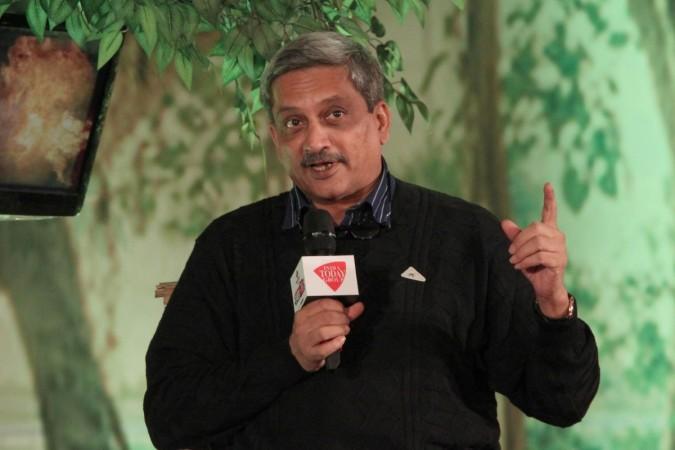
Union defence minister Manohar Parrikar flagged off the country's first indigenous nuclear submarine INS Arihant's inaugural sea trials from the Eastern Naval Command (ENC) base on Monday. Almost 18 months after it passed its harbour acceptance trails (HATs) at the ENC's ship building centre (SBC), the vessel's sea acceptance trials finally became a reality.
With an 83MW pressurised light water reactor at its core for propulsion, the 6,000-tonne vessel was visible in the waters off the Vizag coast when it was coming out from the Vizag Port Trust channel, guarded by a Navy chopper, at around 10.00 am. The vessel sailed from SBC to the Naval Dockyard first and then embarked upon its journey into the open sea, sources said.
The sources further added that the defence minister was present on the occasion at the SBC jetty along with Navy chief RK Dhowan, though no official statement was issued either by the Indian Navy or the Prime Minister's Office (PMO). Scientific advisor to the defence ministry, Avinash Chander, and scientists from the Bhabha Atomic Research Centre, including its chairman RK Sinha and director Sekhar Basu, were also present, reports The Times of India.
According to sources, Parrikar appreciated the efforts put in by those involved in the construction of the nuclear submarine and urged the Indian Navy personnel to work towards adapting to changing technologies during the flagging-off ceremony.
The defence minister reportedly said that India was now in the league of elite nations to have developed their own nuclear submarines, after it took 16 years for the much-awaited milestone to become a reality. The Indian Navy and the authorities concerned kept the ceremony a private affair with everything being directly monitored by the PMO; even those involved in the construction were denied entry to the flagging-off ceremony.
According to a Navy source: "Only a few high-ranking officials were invited for the programme." The source further pointed out that regular staffers of various wings in the SBC were asked to come for duty two hours early because the gates would be shut. Many employees expressed their displeasure at not being given an opportunity to witness the historical event.
















